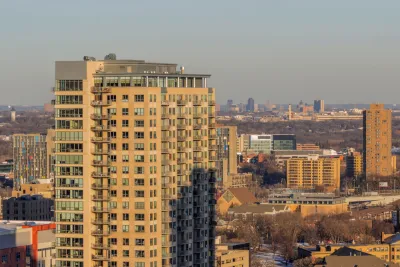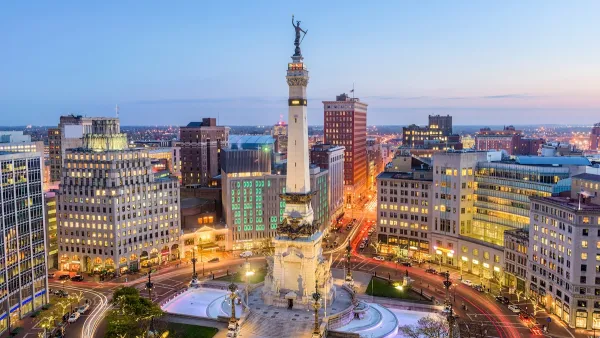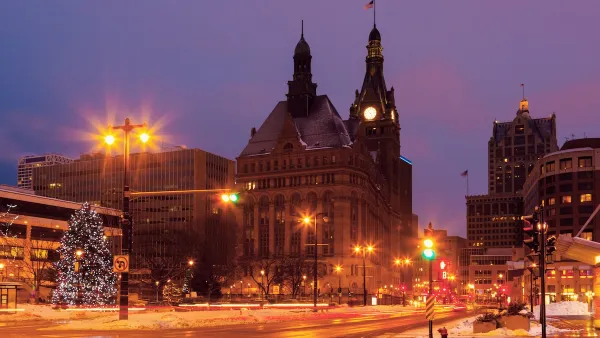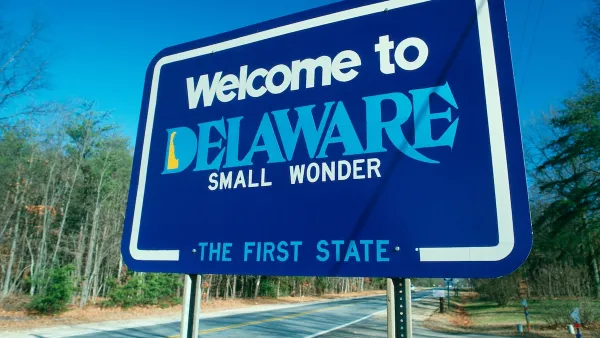Housing advocates say the additional resources made possible by federal relief funds offer a useful model for improving conditions for unhoused people.

“For a brief moment in time, funding materialized that cured long-intractable problems like reducing child poverty, funding unemployment at a dignified level and functionally ending homelessness in cities like St. Paul,” writes Bill Lindeke in MinnPost. But now, “The money has run out, and policymakers and shelter providers are facing the grim prospect of going back to the less humane way that our society treated people before COVID.”
Sarah Liegl, the director of the St. Paul’s Project Home, praises the benefits of single-room occupancy (SRO) housing that became possible during the pandemic. “The influx of money taught us there’s a much better way. It’s amazing. Families can come in and have their own room and lock their door, and we’ve seen a huge increase in the number of families finding housing.”
As federal funding dries up, the model looks less sustainable. “Without help, it leaves a bleak outlook for shelters focused on individuals, like the former Bethesda Hospital site in the Capitol Heights neighborhood,” Lindeke writes.
Advocates are hopeful that the success of pandemic-era programs will convince state legislators to allocate more funding to programs that support SRO shelters. “It might be the first sign of possible change in a field that’s long been seen as an almost Sisyphean struggle against an inevitably victorious foe.” As Lindeke points out, “The U.S. government just proved that it can fix long-standing social ills, and the hope is that a large state surplus can keep the county’s unsheltered families in their stable homes.”
FULL STORY: ‘There’s a much better way’: How pandemic relief offered a roadmap for addressing homelessness

Analysis: Cybertruck Fatality Rate Far Exceeds That of Ford Pinto
The Tesla Cybertruck was recalled seven times last year.

National Parks Layoffs Will Cause Communities to Lose Billions
Thousands of essential park workers were laid off this week, just before the busy spring break season.

Retro-silient?: America’s First “Eco-burb,” The Woodlands Turns 50
A master-planned community north of Houston offers lessons on green infrastructure and resilient design, but falls short of its founder’s lofty affordability and walkability goals.

Test News Post 1
This is a summary

Analysis: Cybertruck Fatality Rate Far Exceeds That of Ford Pinto
The Tesla Cybertruck was recalled seven times last year.

Test News Headline 46
Test for the image on the front page.
Urban Design for Planners 1: Software Tools
This six-course series explores essential urban design concepts using open source software and equips planners with the tools they need to participate fully in the urban design process.
Planning for Universal Design
Learn the tools for implementing Universal Design in planning regulations.
EMC Planning Group, Inc.
Planetizen
Planetizen
Mpact (formerly Rail~Volution)
Great Falls Development Authority, Inc.
HUDs Office of Policy Development and Research
NYU Wagner Graduate School of Public Service




























